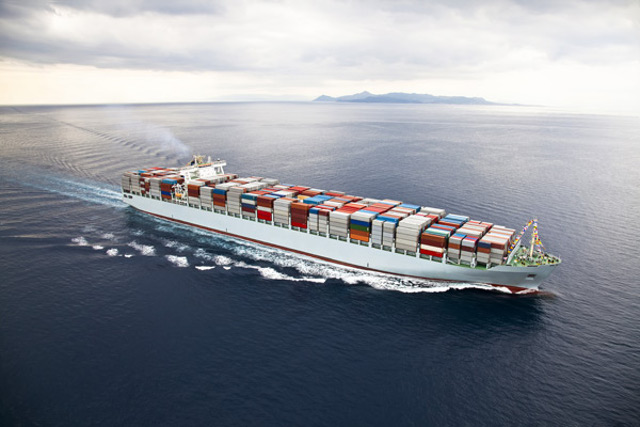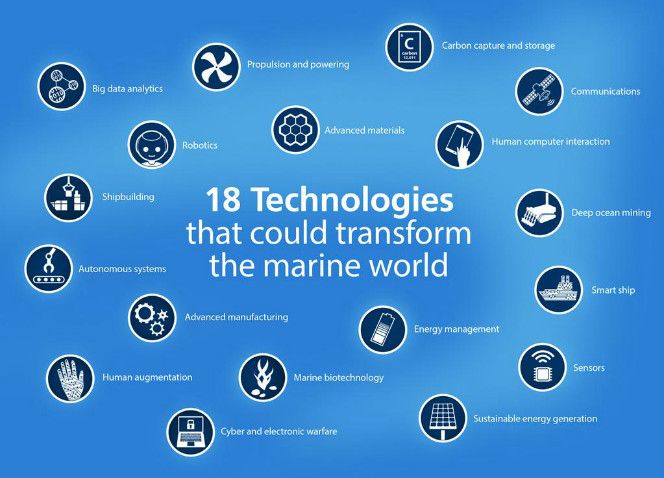The marine technology that will be developed by the year 2030 is going to provide a swift combination between multiple scientific discipline developments that may very well transform commercial ships’ design, building process and operation via the integration of software, hardware and people, as pointed out in Lloyd’s Register (LR)’s Global Marine Technology Trends 2030 report.
The report which is a co-op effort between Lloyd’s Register, the University of Southampton and QinetiQ, carefully evaluates 18 technologies’ transformative impact regarding ship design, the use of ocean space and naval power, due to the fact that the understanding of the oceans is an essential factor for securing the planet’s future, as stated by LR.

Image: factor-tech
The 18 technologies in question are sensors, robotics, propulsion and powering, big data analytics,smart ship, advanced materials, advanced manufacturing, autonomous systems, shipbuilding, sustainable energy generation, energy management, carbon capture and storage, marine biotechnology, cyber and electronic warfare, deep ocean mining, human-computer interaction, communication and human augmentation.
The report displays two technology driver groups – the ones that are going to transform the build space and vessel design thus leading to advancement in the aspects of ship constructing, propulsion and powering and smart ship development; and the ones that are responsible for driving safety, operational and commercial performance – big data analytics, advanced materials, sensors, communications and robotics.
LR served as the lead partner regarding the report’s commercial shipping parts and emphasized on eight technologies that are going to contribute for transforming commercial shipping: big data analytics, robotics, propulsion and powering, sensors, smart ship, advanced materials and communication-related technologies.

The report offers TechnoMax scenarios regarding bulk carrier vessels, container carriers, tankers and gas carries. The scenarios are not concept vessels but provide indications for the potential maximum technology uptake that is relevant when regarding the four vessel market sectors.
TechnoMax vessels are going to be data driven, smarter, with flexible powering options, more eco-friendly, digitally connected via the use of global satellites and fully connected wirelessly onboard, as pointed out in the report.
They are going to require some fundamental changes in the aspects of construction, design, supply chain management and operation. The TechnoMax ships’ design is going to be the product of technologically advanced shipbuilders and the vessels themselves are to be ordered and subsequently operated by owners for the purposes of sharpening their competitiveness and boosting their respective corporate social responsibility credentials.
"Shipping is more likely to evolve rather quickly as things are shaping up at the moment. The evolution is probably going to be uneven and while 2030 is not that far away, we believe that the shipping industry is going to have changed significantly by that time," commented LR’s Marine Director, Tom Boardley.